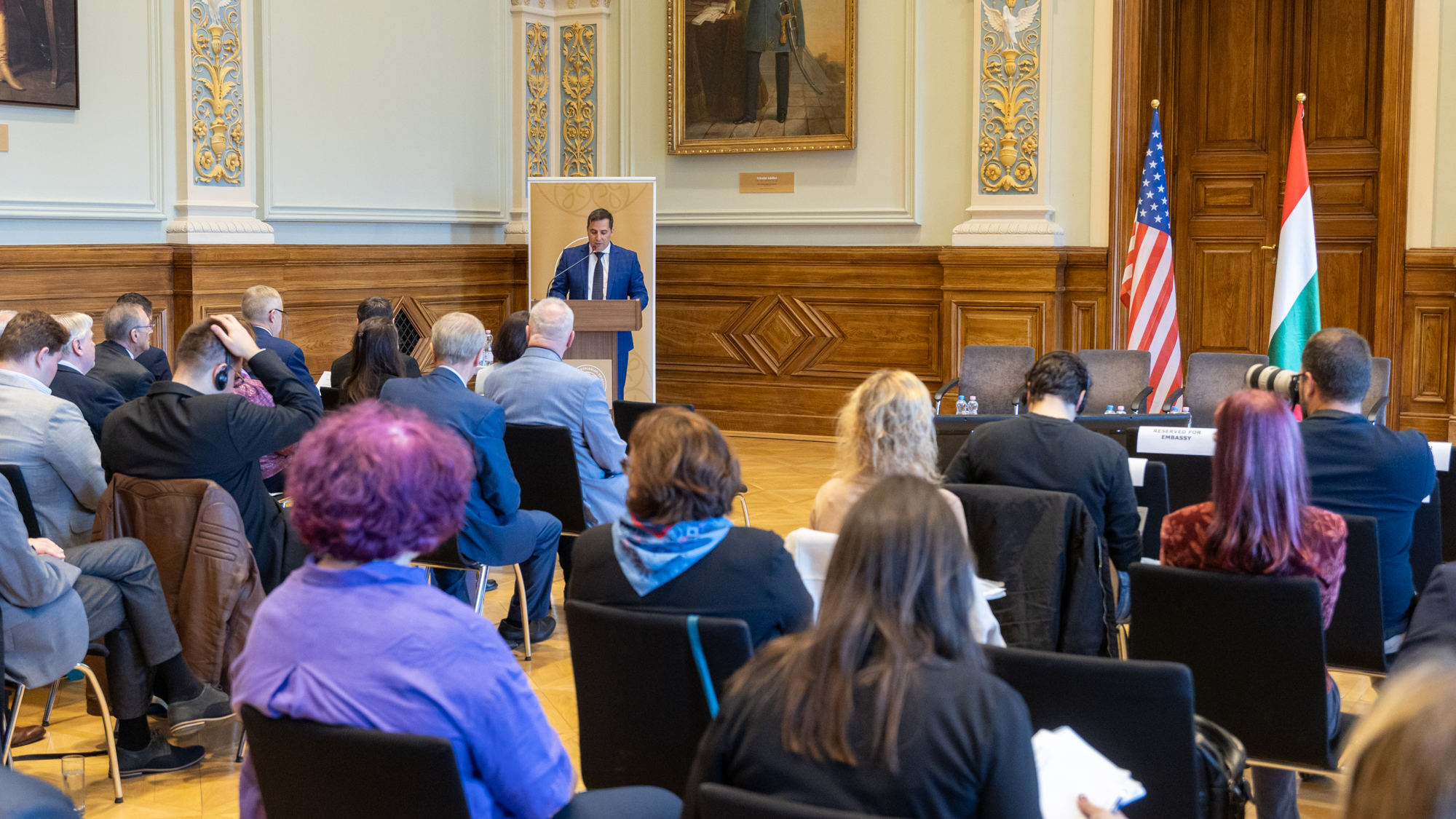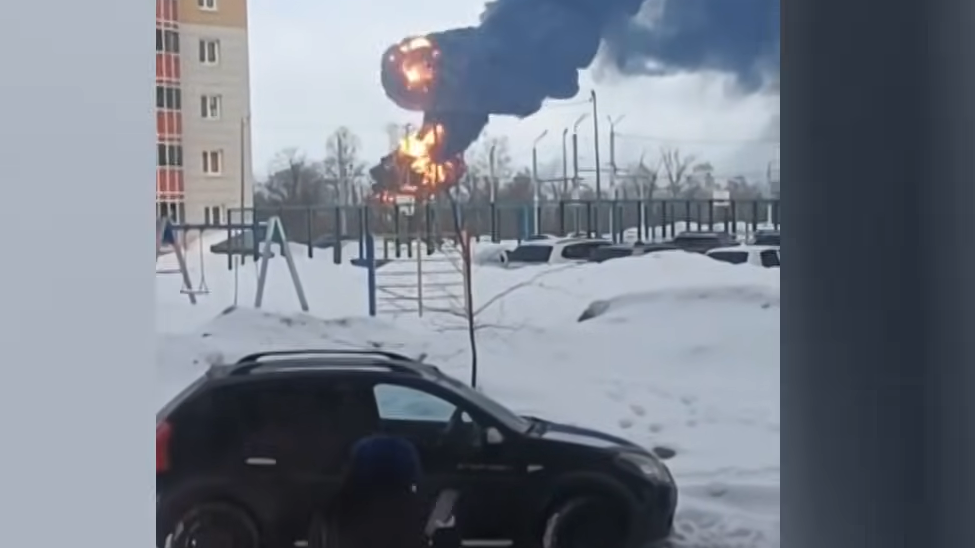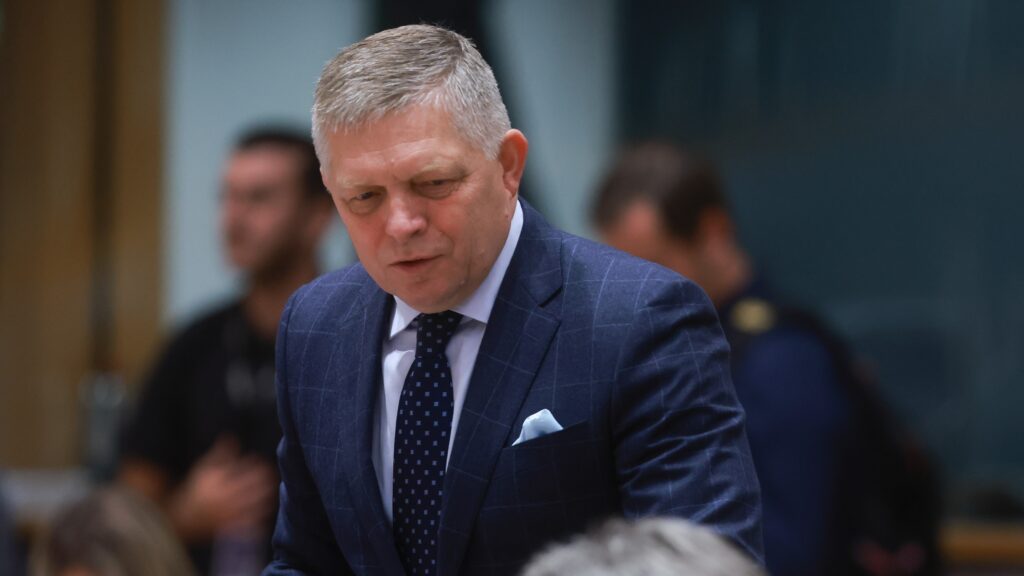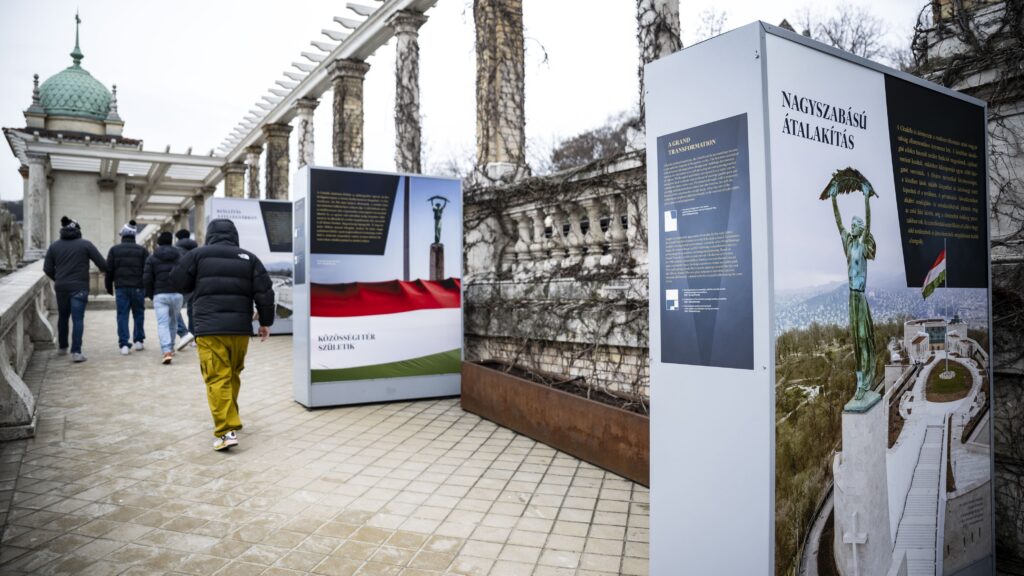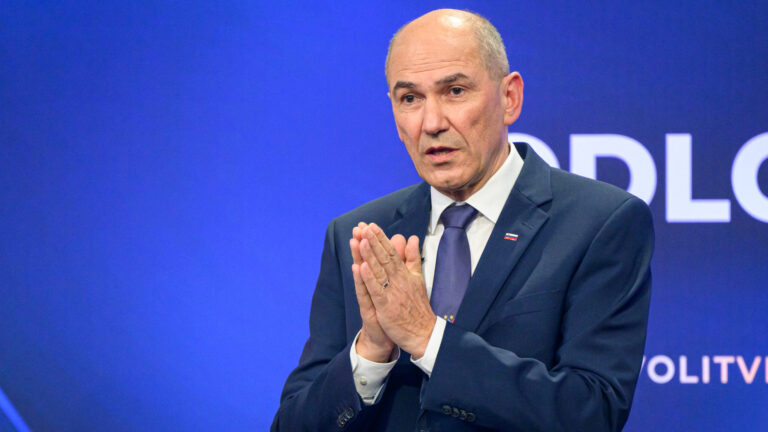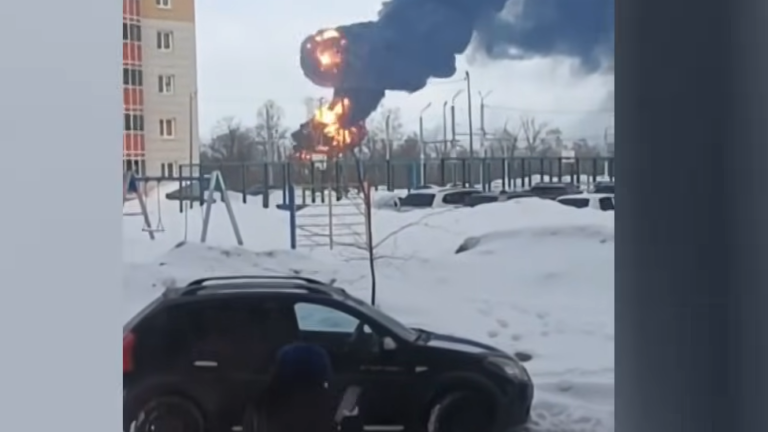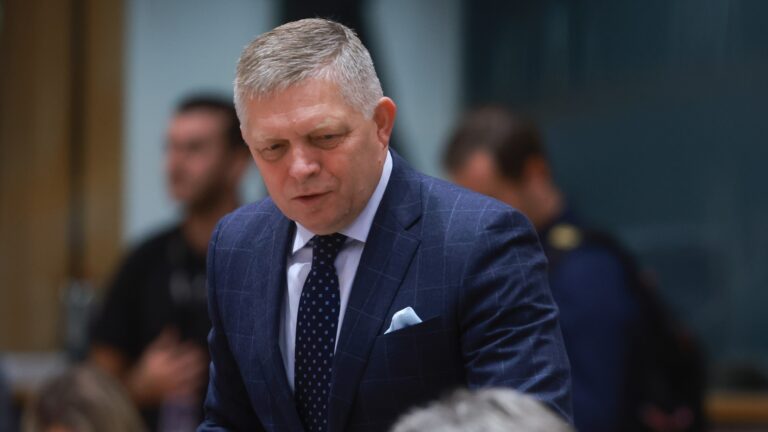The nations of Hungary and the United States of America signed the bilateral Treaty of Friendship, Commerce and Consular Rights on 24 June 1925 in Washington, DC—exactly 100 years ago this year. To mark the centennial of this historic occasion, Ludovika University of Public Service hosted a commemorative event on its Budapest campus on Tuesday, 7 October, featuring a distinguished line-up of guests.
Rector of Ludovika University Gergely Deli was the first to address the audience. In his welcome remarks, he emphasized the institution’s mission to train the public servants of tomorrow to be prepared and dependable, whether they pursue careers in diplomacy, law enforcement, or the military. He also underscored the university’s core belief that public service should always serve the common good.
On the topic of the day, Hungarian–American relations, Mr Deli pointed out that the first Hungarian Minister to the United States was Count László Széchenyi of the historic Széchenyi family, who began his diplomatic service in the US in 1922. He then thanked the John Lukacs Institute for Strategy and Politics and the US Embassy in Budapest for co-organizing the event.
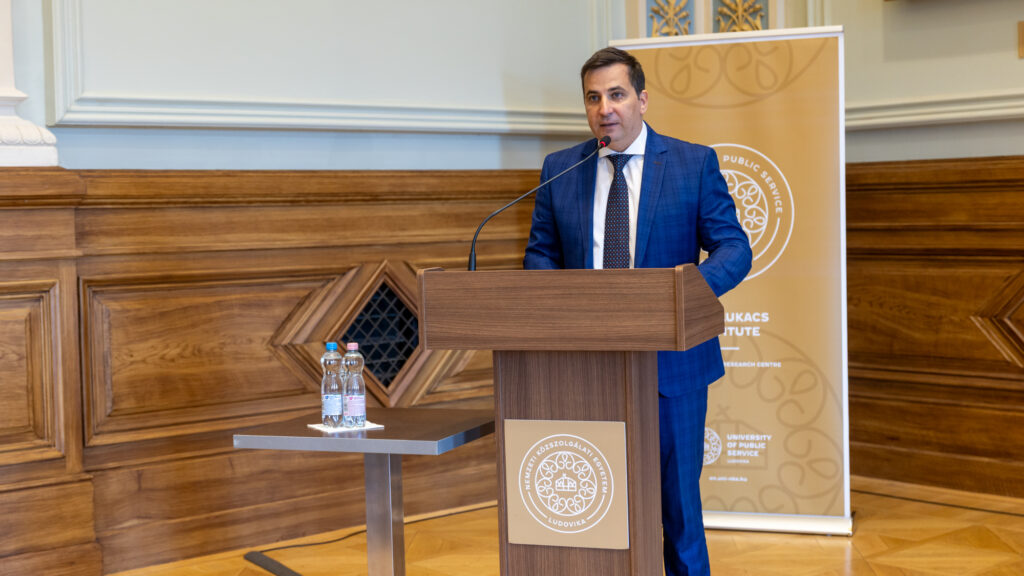
Chargé d’Affaires of the US Embassy in Budapest Robert Palladino was unable to attend in person due to the government shutdown in the United States. Instead, he delivered an exclusive video message in which he praised the enduring nature of Hungarian–American friendship and diplomatic relations over the past century—even during periods when the two nations stood on ‘opposite sides of history’, as he put it. He was referring to World War II and the Cold War, which he elaborated on in his remarks.
Mr Palladino also highlighted how, during the 1956 Hungarian Revolution against the communist regime, tens of thousands of Hungarians sought refuge in the United States. He paid tribute to the many Hungarian immigrants who went on to leave a lasting mark on American society.
He singled out several such notable figures, including nuclear physicist Edward Teller, Holocaust survivor Congressman Tom Lantos, computer scientist John von Neumann, and early film producer Adolf Zukor. Their lives, he said, have exemplified ‘when Hungarian excellence meets American opportunity’.
Mr Palladino also recalled a pivotal moment in Hungarian–American relations: in 1979, when President Jimmy Carter returned the Holy Crown of Hungary to its people. He described the crown as ‘the very soul of the Hungarian nation’ and ‘a symbol of sovereignty’. Concluding his message, he wished Hungary and the United States ‘shared success and mutual respect’ for many years to come.
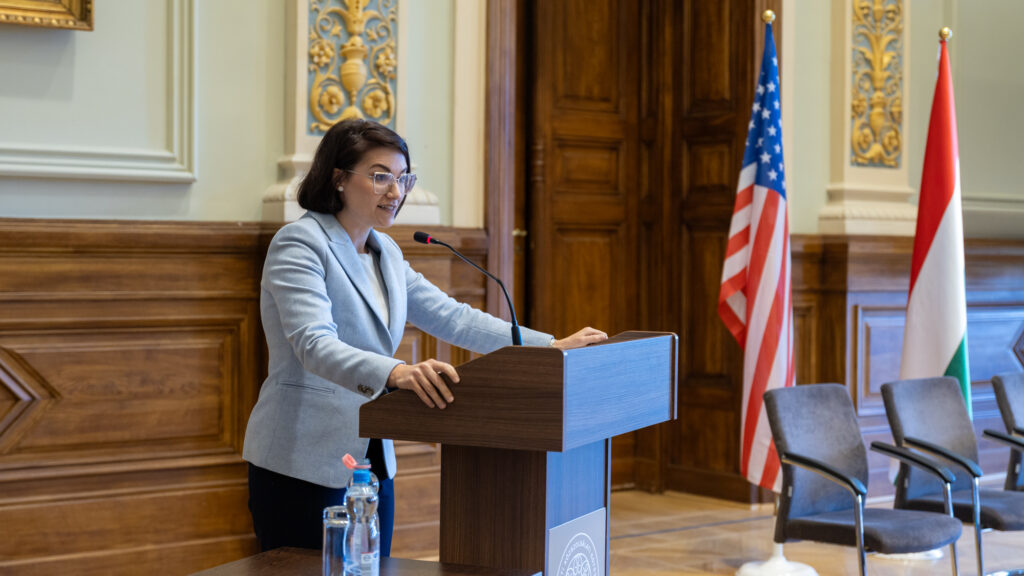
Boglárka Illés, State Secretary for Bilateral Relations at the Ministry of Foreign Affairs and Trade of Hungary, spoke next. She told the audience the United States ‘has become synonymous with freedom, opportunity, and choice’ in Hungary, and that the two nations have ‘a shared commitment to independence, freedom, and equality of nations’. She also highlighted the fact that 120 American companies have made investments in Hungary in the last few years.
Related articles:

